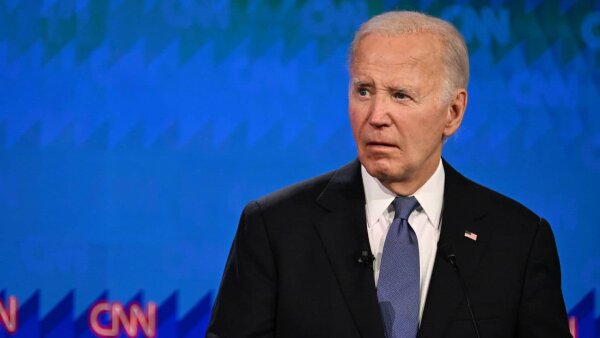House Committee Blocks Biden Administration's Marijuana Rescheduling Efforts

07/19/2024
The House Appropriations Committee last week approved a funding bill that includes an amendment to block the Department of Justice from rescheduling marijuana under the federal Controlled Substances Act (CSA). The amendment was added to the Commerce, Justice, Science, and Related Agencies (CJS) funding bill, which would prevent the department from spending federal funds to reschedule or deschedule marijuana. This move comes as the Biden administration is in the process of reviewing the federal government's prohibition of marijuana and has proposed moving it from Schedule I to Schedule III of the CSA.
In October 2022, President Biden called for a review of the federal government's prohibition of marijuana, and in August 2023, the U.S. Department of Health and Human Services (HHS) recommended rescheduling cannabis to Schedule III. The Department of Justice has indicated that it would approve the rescheduling effort, which is currently in a 60-day public comment period. However, the House Appropriations Committee's approval of the amendment would prevent the rescheduling from taking effect.
Democratic Rep. Rosa DeLauro introduced an amendment to remove the provisions to block rescheduling and other unrelated sections of the bill, but the committee defeated the proposal. The GOP-led effort to prevent the reclassification of marijuana has been criticized by the regulated cannabis industry, as it would maintain the current tax code provisions that deny standard business deductions for companies that sell Schedule I substances.
David Craig, chief marketing officer of Missouri licensed cannabis company Illicit Gardens, called the House Appropriation Committee's approval of the amendment a "disappointing move" and said that blocking cannabis rescheduling is a significant misstep that hinders vital research and maintains an outdated and punitive approach to a substance that has proven benefits.
The committee also rejected an amendment from California Democratic Rep. Barbara Lee, co-chair of the Congressional Cannabis Caucus, that would have prohibited the Justice Department from spending its resources to interfere in state or tribal-regulated marijuana programs. The funding bill retains language to block the Department of Justice from interfering in state-legal medical marijuana programs, but it adds a new provision that permits federal law enforcement agencies to enforce a federal law that increases penalties for distributing marijuana within 1,000 feet of an elementary or vocational school, college, public housing or playground.
The House Appropriations Committee's approval of the amendment to block the rescheduling of marijuana has sparked criticism from advocates for the regulated cannabis industry and those who support the rescheduling of the drug. The move could have significant implications for the industry and for the federal government's approach to marijuana policy.
Reference
In October 2022, President Biden called for a review of the federal government's prohibition of marijuana, and in August 2023, the U.S. Department of Health and Human Services (HHS) recommended rescheduling cannabis to Schedule III. The Department of Justice has indicated that it would approve the rescheduling effort, which is currently in a 60-day public comment period. However, the House Appropriations Committee's approval of the amendment would prevent the rescheduling from taking effect.
Democratic Rep. Rosa DeLauro introduced an amendment to remove the provisions to block rescheduling and other unrelated sections of the bill, but the committee defeated the proposal. The GOP-led effort to prevent the reclassification of marijuana has been criticized by the regulated cannabis industry, as it would maintain the current tax code provisions that deny standard business deductions for companies that sell Schedule I substances.
David Craig, chief marketing officer of Missouri licensed cannabis company Illicit Gardens, called the House Appropriation Committee's approval of the amendment a "disappointing move" and said that blocking cannabis rescheduling is a significant misstep that hinders vital research and maintains an outdated and punitive approach to a substance that has proven benefits.
The committee also rejected an amendment from California Democratic Rep. Barbara Lee, co-chair of the Congressional Cannabis Caucus, that would have prohibited the Justice Department from spending its resources to interfere in state or tribal-regulated marijuana programs. The funding bill retains language to block the Department of Justice from interfering in state-legal medical marijuana programs, but it adds a new provision that permits federal law enforcement agencies to enforce a federal law that increases penalties for distributing marijuana within 1,000 feet of an elementary or vocational school, college, public housing or playground.
The House Appropriations Committee's approval of the amendment to block the rescheduling of marijuana has sparked criticism from advocates for the regulated cannabis industry and those who support the rescheduling of the drug. The move could have significant implications for the industry and for the federal government's approach to marijuana policy.
Reference







